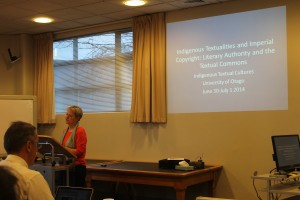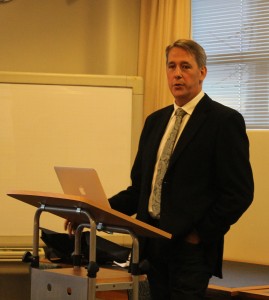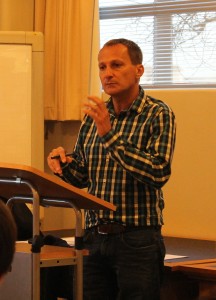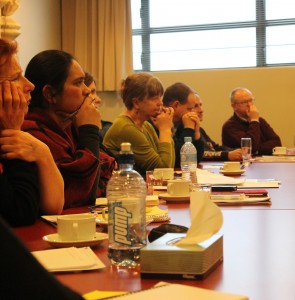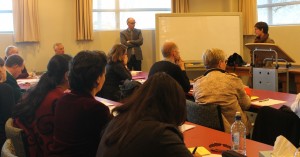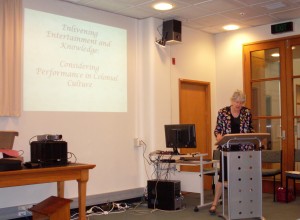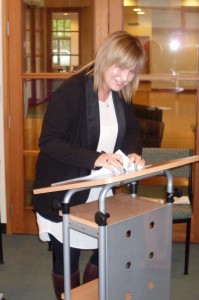Elemental Histories
Professor Tom Brooking’s symposium ‘The Colonial World: Elemental Histories’, which will be held at the Hocken Collections on 31 October, has attracted a great line up of speakers. Featured on the programme are Associate Professor Grace Karskens (UNSW) who will open and close the day’s proceedings, and there will be presentations by James Beattie (Waikato), Mike Roche (Massey), Eric Pawson (Canterbury), Katie Pickles (Canterbury), Peter Holland (Otago), Rachael Egerton (Environment Southland), Lucy Mackintosh (Auckland), Tom Brooking (Otago), Andre Brett (Melbourne) and Michael Davis (Sydney). The symposium will end with the launch of James Beattie’s latest book, Climate, Science and Colonisation in Australasia (Palgrave Macmillan), co-edited with Emily O’Gorman and Matt Henry.
There is no cost to go this event but if you wish to attend this one-day symposium please register your interest with Prof. Tom Brooking (tom.brooking@otago.ac.nz). Further details about the programme will appear on this blog in October.
Successful symposium on Indigenous Textual Cultures
The Centre was pleased to hold the Indigenous Textual Cultures symposium this week, an event that attracted a number of scholars from around the world interested in the history of indigenous peoples’ engagement with texts, and textual culture. Mark Brunton, Research Manager Māori gave a mihi whakatau (welcome) to open the event, which was held at the wonderful Hocken Collections, one of New Zealand’s premier research libraries and archives. A full hour was assigned for each presentation, allowing for depth of discussion within a focused event.
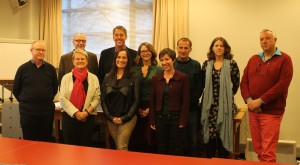
Presenters from left: Michael Reilly (Otago); Isabel Hofmeyr (Witswaterand); Tony Ballantyne (Otago); Keith Thor Carlson (Saskatchewan); Ārini Loader (VUW); ; Anna Johnston (Tasmania); Laura Rademaker (ANU); Bruno Saura (Polynésie Française); Emma Hunter (Cambridge); Lachy Paterson (Otago). Absent: Noelani Arista (Hawai’i)
See programme for full details and abstracts.
Although there are of course specific differences in how indigenous peoples of various localities and time periods engaged with literacy and texts, the symposium was extremely valuable in generating conversation, and a publication is planned from research presented. We would like to thank the locals who came along to listen, as well as several from the North Island. In particular we would like to thank Julie Gough for the amazing poster image, and the Hocken Collections for all their support.
Environmental History Symposium
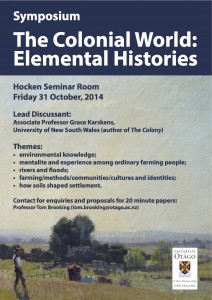 Paper proposals are now being invited for an upcoming CRoCC event, an environmental history symposium at the Hocken Collections, University of Otago, Dunedin. It will be held on 31 October, and feature an address by Associate Professor Grace Karskens (University of New South Wales), author of The Colony.
Paper proposals are now being invited for an upcoming CRoCC event, an environmental history symposium at the Hocken Collections, University of Otago, Dunedin. It will be held on 31 October, and feature an address by Associate Professor Grace Karskens (University of New South Wales), author of The Colony.
If you are interested in presenting a paper or you want to attend the event please contact Professor Tom Brooking (tom.brooking@otago.ac.nz).
Crowns and Colonies: Monarchies and Colonial Empires
An international conference convened by Robert Aldrich and Cindy McCreery
With a keynote address by Professor Miles Taylor, Director of the Institute for Historical Research, University of London, on Queen Victoria and India
Department of History,
School of Philosophical and Historical Inquiry
University of Sydney
11-13 June 2014
From the time of Alexander the Great and the Roman Caesars down to the empire of Queen Victoria and beyond, monarchism and imperialism have often been linked – indeed, republican colonial empires have been notable exceptions in international history. Napoleon III dreamed of constructing an ‘Arab kingdom’, Victoria was proclaimed Empress of India, King Leopold created his own realm the Congo, and Italy’s King Victor Emmanuel III was named Emperor of Ethiopia. Even today the Commonwealth of Nations is bound together by the figure of the British monarch, and the Danish queen reigns over Greenland and the Faeroe Islands.
Outside of Europe, as well, monarchs ruled over disparate peoples, their hereditary and often sacred positions bringing together under a crown the empires of China, Japan, the Ottoman state and several pre-colonial African empires. Non-Western monarchs – Zulu chieftains, Indian maharajahs, Emperor Haile Selassie, the king of Korea among others – were themselves often displaced by imperial conquest. Nationalist movements sometimes campaigned for the restoration of dynasties, at other times for abandonment of ‘feudal’ rule.
This international conference, and a proposed collection of essays commissioned from participants, explores the links between crowned rulers and their colonial possessions. Paper proposals are invited on any historical period or region.
Themes may include but are not limited to:
- different theories of kingship in relation to colonial empire;
- royal initiatives in colonial expansion and patronage of colonial expeditions, chartered companies and learned societies;
- the legal position and prerogatives of monarchs in colonial systems;
- interventions by monarchs in colonial politics and governance;
- royal visits to colonies (and visits by colonial rajas, sultans and other rulers to colonial metropoles);
- royal personages in the colonial military and administration; representations of monarchs in colonies (statues, buildings, artwork) and commemoration of royal births, anniversaries and deaths; royal honours, decorations and investitures;
- movements for the restoration of indigenous dynasties abolished by colonial authorities;
- the repercussions of metropolitan and nationalist republicanism and dissolution of monarchies in the colonial world;
- and links between former colonies and monarchies (as in the Commonwealth).
Please send proposals of papers by 15 February 2014
Please include the following:
- Your academic or professional affiliation and full contact details (email, telephone and postal address)
- The title of your proposed presentation
- A 250-word abstract
- A one-page cv or list of your major publications
All proposals will be assessed after the deadline of 15 February 2014.
Please note that there will be no registration fee for the conference. There will be a conference dinner at participants’ own expense.
Contact: robert.aldrich@sydney.edu.au; cindy.mccreery@sydney.edu.au
Cowan Symposium: Draft Programme
The draft programme for the forthcoming James Cowan Symposium (21 February at the National Library, Wellington) is now available.
SCHEDULE
9-9.30: coffee, muffins
9.30-10.45: Mihi and welcome followed by a Keynote lecture from Chris Hilliard, University of Sydney
Chair: Annabel Cooper
Coffee
11.00-12.30: Session One (Chair: Paul Diamond)
Robert Joseph and Paul Meredith/On The Maniapoto O&T Report
Te Kenehi Teira/Historic Places on Rangiaowhia/recording sites
David Green /Commemorating Chivalry and Unity?
Lunch
1.30-3.00: Session Two (Chair: David Colquhoun)
Ariana Tikao/ Tales from the Border
Kathryn Parsons/ The Enzed Junior
Jim Frood/ Cowan for Secondary School Students
Coffee
3.15-5.00: Session Three (Chair: Angela Wanhalla)
Roger Blackley/ The Plutarch of Maoriland
Lydia Wevers/ Romance of the Rail
Annabel Cooper and Diane Pivac/ Filmed History: Cowan’s Screen Legacy
Wrap-Up Comments: Tony Ballantyne, University of Otago
5.30 Drinks
Considering Performance in Colonial Culture
A special issue of the Journal of New Zealand Studies on Colonial Performance has just been released. It features essays by a number of the Centre’s members, notably Tom Brooking and John Stenhouse, and the volume was edited by Barbara Brookes. Congratulations to all involved in creating this special issue!
James Cowan Symposium
A reminder that abstracts for the James Cowan Symposium (to be held in early 2014), co-hosted by the Centre for Research on Colonial Culture and the Alexander Turnbull Library, are due by 30 September. More details about the event can be accessed here: Cowan Symposium ePoster
Presenters Perform
A very successful symposium on Colonial Performance was held at the Hocken Collections Seminar Room on Monday, November 19th. Presenters gave illuminating talks on a wide range of colonial performances from Irish drama in Dunedin, to Maori performers in Manhattan, to the theatre of the Dunedin police court, among other topics.
Barbara Brookes, who convened the day-long symposium, kicked off the event with a discussion of touring medical lecturer Dr. Anna Longshore Potts.
Barbara was followed by two presentations on the theatre scene in Dunedin. Lisa Warrington invited us into Dunedin’s first theatre, a converted horse stable, and Peter Kuch drew attention to the importance of Irish drama in the development of Dunedin theatre during the 1860s. Kirstine Moffatt entertained us all with stories about the amateur pianist, who appeared in private homes, at concerts held in church halls, and barns.
Unlike Richard John Seddon, who spoke for hours at a time, Tom Brooking used a mere 20 minutes to describe the role of performance in colonial politics. At the same time he revealed some of the popular prejudices against Seddon in New Zealand’s historiography. Rosi Crane drew upon her doctoral research in the history of science to show how university professors used their role as public intellectuals to advance scientific understanding, for example in the field of evolution.
Bronwyn Dalley gave a vivid account of the many re-inventions of ‘urban investigator’, free-thinker and spiritualist, Lotti Wilmott in 1880s Christchurch. The tensions between ethnographic ideas about race and “primitive” societies were put to the test by the appearance of Maori performers at New York City’s Hippodrome in 1909-10. Marianne Schultz, from Auckland University, also explored how the leaders of the US suffragette movement used the case of Maori women, who had the right to vote, in their own campaigns for enfranchisement. Michelle Willyams also looked at Maori performers and performance, highlighting the hybrid nature of the musical repertoire developed by Reverend Seamer’s Waiata Maori Choir in the 1920s and 1930s.
University of Otago MA student Fabia Fox walked us through the streets of nineteenth-century Dunedin, and into the backyards of homes in the ‘Devil’s Half-Acre’ famous for its criminal underclass. Their exploits were often played out in the Dunedin police court, and relayed to a voyeuristic reading public through the column of the court reporter. In contrast, John Stenhouse embellished his talk on the Rev. Rutherford Waddell with his own rendition of excerpts from his famous sermon on the sin of cheapness. Prof. Lyn Tribble (English) eloquently wrapped up the day, drawing together the various themes into what she described as an ecology of performance.
Webs of Empire
Tony’s Ballantyne’s new book, Webs of Empire, is capturing the attention of New Zealand media. Listen to Tony talk about his new book on Waatea News to find out how Gore and Chicago are connected, the important links between Māori and Asia, and the processes and practices of colonial knowledge production.
Colonial Performances Abstracts
A feast of enticing papers are on offer at the Colonial Performances Symposium, which takes place at the Hocken Collections on Monday November 19th.
Feel free to read the Abstracts, which are now available.

